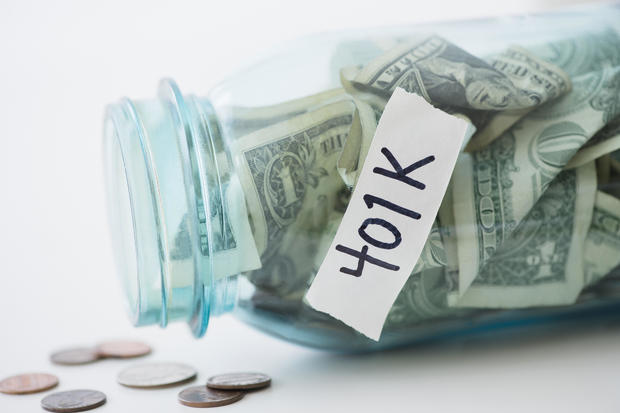A 401(k) plan can play a key role in your retirement income, especially if you resist the urge to withdraw from it early (before age 59 ½). However, you may need a lump sum of cash at some point in your life – such as to cover a medical emergency or the down payment on a house.
While an early 401(k) withdrawal can help in those situations, it often comes with a hefty cost. Make sure you know the consequences first.
It’s never too early to start planning for retirement. Get started today by creating a free online dashboard to track your progress.
If you’re still considering withdrawing from your 401(k) early, here’s what you should know about the penalty tax.
What is a 401(k) plan?
Traditional 401(k) plans are employer-sponsored retirement accounts. They allow you to contribute pre-tax earnings through automatic payroll deductions. Employers can also contribute to your account by matching your contributions or making non-matching donations.
Your 401(k) account balance grows over time, not only from contributions but thanks to interest yields. However, the Internal Revenue Service (IRS) restricts how much you can contribute each year and when you can take penalty-free distributions.
If you’re looking to explore retirement accounts besides the traditional 401(k) it may also be worth considering an IRA.
What is an early withdrawal from a 401(k)?
An early withdrawal from a 401(k) happens when you take distributions from your account before the age of 59 ½.
The accounts are designed to provide you with an additional source of income during retirement, hence, the age requirement on distributions. If you decide to make an early withdrawal from your 401(k), the IRS will charge you a penalty.
401(k) early withdrawal penalty
The penalty for making a non-exempt early withdrawal from your 401(k) is a 10% tax on the distribution amount. You must report 401(k) distributions on your tax return for the tax year in which you made the withdrawal. The amount due will be factored into your overall tax balance due or returned to you.
For example, if you are a 35-year-old single filer and made $60,000 in 2022, your tax rate would be 22%. If you take a 401(k) distribution of $20,000, you would add the $20,000 to your income for the year, which could impact your tax rate.
In this case, you’d still fall into the 22% tax rate category. As a result, you would owe $4,400 income tax on the distribution and an additional $2,000 for the 10% early distribution tax. In total, the early distribution would cost you a hefty $6,400, leaving a net amount of $13,600.
It’s usually best to leave your 401(k) funds in your account until retirement. Doing so maximizes the account’s interest-earning potential and prevents significant tax penalties. However, in some situations, cashing out part or all of your 401(k) may be the best available option. When that’s the case, be sure you understand what costs to expect and how the distribution will impact your retirement income.
If you’re looking to explore retirement accounts besides the traditional 401(k) it may also be worth considering an IRA.
How to avoid an early withdrawal penalty
You can avoid the 401(k) early withdrawal penalty by waiting until you are 59 ½ to take distributions from your plan. The IRS also lists various situations which could exempt you from the 10% tax, such as taking an early distribution due to a qualifying disability or reducing excess contributions. Make sure to review the exemptions list to see if your situation qualifies.
Another way to avoid the 10% early withdrawal tax is to opt for a loan against your 401(k) account. Your loan amount won’t be taxed as a distribution as long as:
- You borrow 50% or less of your vested balance – up to $50,000.
- The loan is repaid within five years (unless you use it to buy your primary home).
- Your payments are substantially level.
- Payments are made at least quarterly over the life of the loan.
While 401(k) loans can be a good alternative, not all plan providers offer them so you’ll have to check to see if it’s an option for you.
Alternatives to withdrawing from 401(k)
How can you access cash without withdrawing or borrowing from your 401(k)? If you’re a homeowner with equity, you can consider a cash-out refinance, home equity loan, or home equity line of credit (HELOC). All three of these options typically come with competitive interest rates because the financing is secured by your home.
Permanent life insurance policies with cash value components are another option. In this case, your death benefit serves as collateral for the loan. Once the loan balance is paid off, your death benefit is restored in full. Don’t have either? You can also look into personal loans from a wide variety of online lenders. The better your credit and income, the more competitive offerings you can access.


